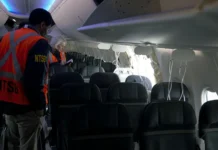Washington, D.C. – Oregon’s U.S. Senator Jeff Merkley—Chairman of the Subcommittee on Chemical Safety, Waste Management, Environmental Justice, and Regulatory Oversight—announced that the subcommittee will hold a hearing to examine solutions for reducing plastic waste and its impacts on public health and the environment on Thursday, December 15, at 10:00 am Eastern in Dirksen Senate Office Building Room 406 in Washington, D.C.
“When it comes to reducing waste, we were taught the three Rs: reduce, reuse, and recycle; however, the reality for plastics is the three Bs: buried, burned, or borne out to sea,” said Sen. Merkley. “My Break Free from Plastic Pollution Act is a comprehensive plan to reduce plastic production, improve our recycling systems, and protect frontline communities. It’s not just enough for us to curb our own individual plastic use, we must take action at the federal and international level to solve this environmental and public health crisis.”
Live video of the hearing will be provided on the Environment and Public Works Committee’s Website, Twitter, and YouTube.
Many steps to tackle the plastic pollution crisis are already widely popular with the American people. Recent polling shows that two-thirds of Americans believe that businesses that produce or use plastics in their products should pay for collecting, sorting, and recycling plastics; 86 percent of Americans support requiring new plastic to contain at least some recycled material; and 80 percent of Americans support phasing out certain non-recyclable plastics altogether.
The Break Free from Plastic Pollution Act – led by Sen. Merkley and Rep. Alan Lowenthal (D-CA) – would reduce plastic production, increase recycling, and protect frontline communities from the burden of toxic emissions from plastic waste by changing the incentives of the industry. The bill would shift the burden of cleanup to the corporations that produced the plastics so they have financial motivation to end the burning and dumping; strengthening environmental justice protections; eliminating waste export loopholes; and extending across the nation existing laws that have been proven to work on the state and local level, among other steps.
















